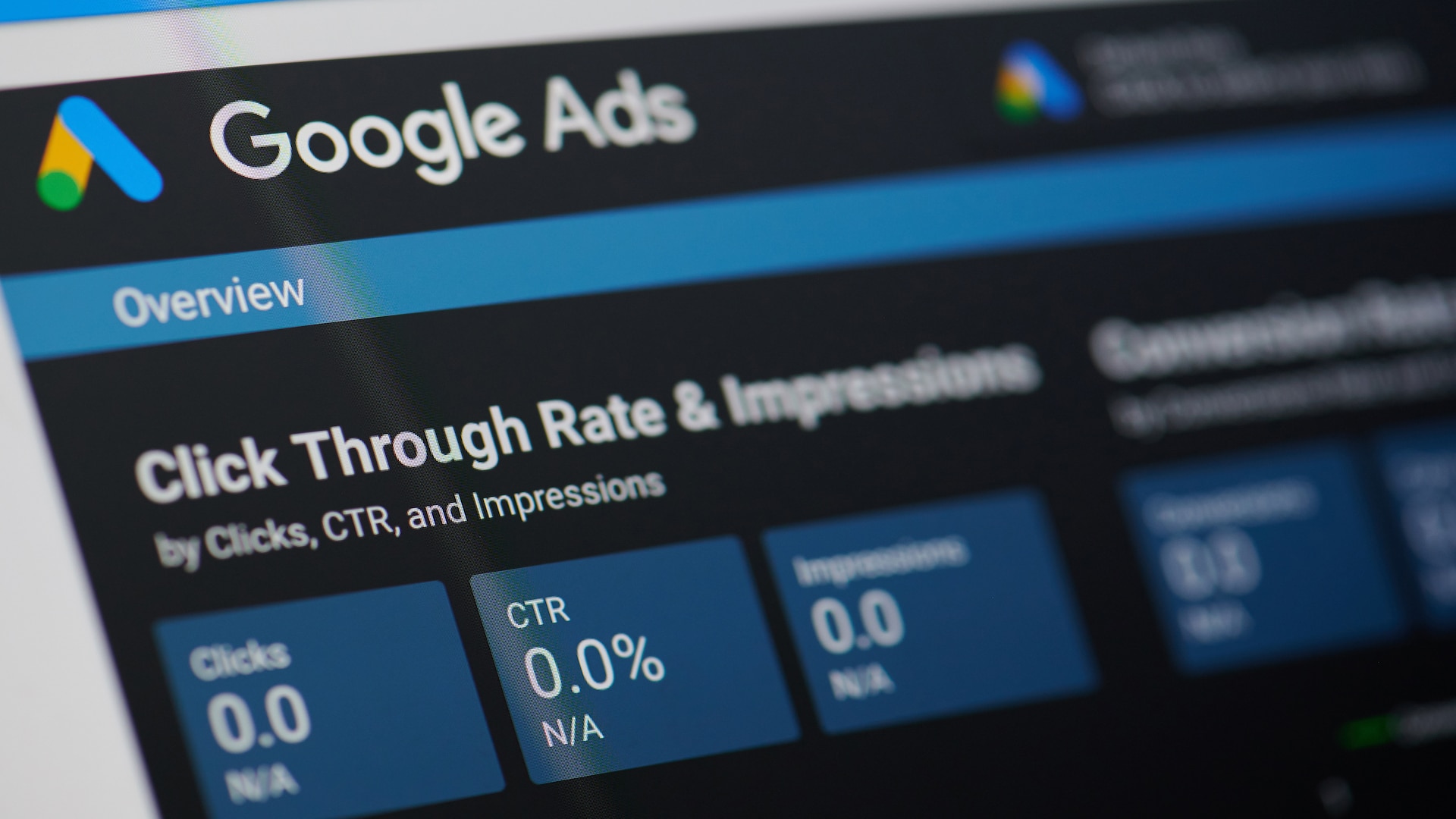Running gambling advertising campaigns on Google can be a lucrative strategy if executed correctly. However, navigating Google’s advertising policies in this industry can be challenging.
In this blog post, we will explore how to effectively run gambling advertising campaigns on Google while staying compliant with their guidelines. By following these tips, you can maximize the success of your campaigns and reach your target audience effectively.
What are Gambling ads?
Gambling ads refer to promotional materials and content created by businesses in the betting and gaming industry to advertise their services, products, or platforms. These advertisements are designed to attract potential customers, raise awareness about various gambling offerings, and ultimately drive engagement and revenue for the gambling businesses. Gambling ads can take various forms, including online banners, video commercials, sponsored content, and more, and they are often distributed through digital platforms, television, radio, and print media.
Types of Gambling Ads
Online Casino Promotions: These ads focus on online casinos, highlighting their games, bonuses, jackpots, and the overall gaming experience. They may feature visuals of popular casino games like slots, roulette, poker, and blackjack.
Sports Betting Ads: These advertisements center around sports betting, showcasing odds, live betting options, and the excitement of wagering on various sports events.
Poker Tournaments: Poker ads often promote online poker rooms and poker tournaments, emphasizing the competitive and strategic aspects of the game.
Lottery and Scratch Card Ads: Advertisements for lotteries and scratch cards showcase the potential for big winnings with minimal effort, enticing audiences with the allure of a life-changing jackpot.
Bingo Ads: These ads highlight online bingo games, social aspects, and the chance to win prizes while enjoying a fun and engaging activity.
Key Elements of Gambling Ads
Promotions and Offers: Many gambling ads focus on promotions, bonuses, and special offers to entice users to sign up and play. These can include free bets, deposit bonuses, cashback, and more.
Responsible Gambling Messaging: Due to the potentially addictive nature of gambling, responsible gambling messaging is often included in ads. These messages encourage users to gamble responsibly and seek help if needed.
Winning Imagery: Gambling ads often feature imagery of players celebrating wins, displaying large jackpot amounts, or enjoying the thrill of victory. These visuals aim to evoke the excitement of winning.
Attractive Graphics and Design: Eye-catching visuals and dynamic graphics are used to capture the audience’s attention and create a sense of excitement.
Engaging Narratives: Some ads tell stories that revolve around gambling experiences, portraying characters who enjoy success or the thrill of competition.
Challenges of running gambling ads on Google
While gambling ads can be effective in reaching a targeted audience, they also face challenges related to ethics, responsible advertising, and potential harm. To address these challenges, platforms and advertisers often implement age restrictions, incorporate responsible gambling messages, and ensure compliance with regulations.
Guidelines For Google Gambling Ads

Google has specific guidelines for gambling ads to ensure a safe and responsible advertising environment.
Here are the key guidelines for running gambling ads on Google:
- Compliance with Policies: Gambling-related ads are allowed if they comply with Google’s policies and the advertiser has received the proper Google Ads certification.
- Target Approved Countries: Gambling ads must target approved countries where online or offline gambling is legal.
- Responsible Gambling Information: Ads must have a landing page that displays information about responsible gambling.
- No Targeting Minors: Gambling ads must never target minors.
- Check Local Regulations: Advertisers should check local regulations for the areas they want to target.
It’s important to note that Google differentiates between ads for physical casinos and online gambling platforms, each subject to its own set of regulations. Advertisers of gambling-related content are required to obtain certification that demonstrates compliance with Google’s guidelines.
Overall, advertisers must stay informed and compliant with Google’s guidelines to make the most of the advertising platform while following the rules.
How to Run Google Ad Campaigns for Online Gambling

Running Google Ads campaigns for an online gambling business requires careful consideration and adherence to Google’s advertising policies.
Here is a step-by-step guide to help you get started:
Understand Google’s Advertising Policies: Familiarize yourself with Google’s policies regarding gambling and games advertising. These policies outline the types of gambling-related content that are allowed and the country-specific restrictions for targeting your campaigns.
Ensure Proper Licensing: Make sure you are properly licensed to promote gambling. If you are not licensed, you will not be able to run ads promoting gambling-related content.
Create a Google Ads Account: If you don’t already have one, create a Google Ads account by visiting the Google Ads homepage and clicking “Start Now”.
Provide Accurate Business Information: When setting up your Google Ads account, provide accurate information about your business and ensure that your billing details are accurate.
Choose the Right Campaign Type: Google Ads offers various campaign types, including Search, Display, Video, and more. Choose the campaign type that best fits your gambling advertising objectives. For gambling ads, Search and Display campaigns are often the most relevant.
Select Your Campaign Goal: Google will ask you to select a goal for your campaign. Choose the goal that aligns with your advertising objectives. Google will guide you to the proper campaign type based on the goal you select.
Set Up Ad Groups: After selecting your campaign type, you will need to set up ad groups. Ad groups allow you to organize your ads and target specific keywords or audiences. Follow the guides provided by Google to set up your ad groups.
Create Your Ads: Once you have set up your ad groups, it’s time to create your ads. Follow the guides provided by Google to create compelling and engaging ads that comply with their policies.
Target Acceptable Locations: Ensure that your campaign is targeted only to acceptable locations. If your ad leads to content that violates Google’s policies, edit the landing page to make it comply.
Request a Review: If your ads are disapproved, you can request a review from Google. They will check if the ads can start running after you have made the necessary changes.
Remember to always comply with Google’s policies and guidelines to ensure the success of your Google Ads campaigns for your online gambling business.
3 Proven Strategies For Google Gambling Advertising Campaigns
While Google Ads restricts iGaming promotion, here’s how to craft a strategic campaign around regulations:
The dynamic world of iGaming beckons, and Google Ads is a powerful tool for reaching potential players. However, Google Ads enforces strict gambling advertisement policies. Direct promotion of online casinos or games is prohibited. But fear not, iGaming enthusiasts!
Here’s how you can navigate Google Ads for a successful, compliant campaign:
Understanding the Limitations:
- Know the Rules: Familiarize yourself with Google’s Advertising Policies for Gambling and Games. These policies outline what content is allowed and restricted.
- Focus on Ancillary Services: Since directly promoting gambling is off-limits for some geos, consider advertising ancillary services related to your iGaming platform. This could include information portals, strategy guides (if applicable to your games), or responsible gambling resources.
Crafting a Compliant Campaign:
- Target Wisely: Google Ads offers granular targeting options. Focus on demographics and interests relevant to your iGaming niche, excluding users below the legal gambling age.
- Compelling Creatives: Craft clear, informative ad copy that highlights the benefits of your ancillary service. Use strong calls to action that direct users to your landing page.
- Landing Page Transparency: Your landing page should clearly explain the purpose of your service and its connection (if any) to iGaming. Ensure it adheres to responsible gambling practices.
Exploring Alternative Strategies:
- Brand Awareness: Consider using Google Ads for brand awareness campaigns. This can help establish your brand name within the iGaming space without directly promoting gambling activities.
- Search Engine Optimization (SEO): Solid SEO practices can improve your organic search ranking for relevant keywords. This can attract users who are actively searching for information related to your iGaming niche.
Conclusion
Running gambling ads on Google requires careful planning, adherence to policies, and a commitment to responsible gambling. By following these steps, you can navigate the intricacies of advertising in the gambling industry while promoting transparency, integrity, and a safe online environment for users. Remember that responsible advertising practices not only benefit your business but also contribute positively to the overall digital ecosystem.
Frequently Asked Questions:
1. Are there any restrictions on the types of casino games that can be advertised on Google?
Google prohibits the promotion of online casinos that offer real-money games, online sports betting, and promotions for offline gambling establishments. However, certain types of casino games, such as free-to-play social casino games, may be allowed under specific conditions.
2. How can I ensure that my gambling ads comply with Google’s age restrictions?
Advertisers are required to verify the age of users before showing them gambling-related ads. You can use age verification methods such as age-gating mechanisms on your website or requiring users to confirm their age before accessing gambling content.
3. What are some best practices for promoting responsible gambling in casino ads?
Advertisers should include responsible gambling messaging in their ads, such as promoting self-exclusion programs, providing information about problem gambling helplines, and encouraging responsible gaming behavior. It’s essential to strike a balance between promoting your casino offerings and ensuring the safety and well-being of your customers.
4. Can I target specific geographic locations with my gambling ads on Google?
Yes, you can target specific geographic locations with your gambling ads on Google using location targeting options. You can target users based on their country, region, city, or even custom-defined geographic areas to reach your desired audience.
5. What should I do if my gambling ads are disapproved by Google?
If your gambling ads are disapproved by Google, review the reason for disapproval provided in the Google Ads interface and make the necessary changes to ensure compliance with Google’s policies. You can also submit an appeal if you believe that your ads were incorrectly disapproved.
Final Note
Running gambling or casino ads on Google can be a highly effective strategy for attracting new customers and driving traffic to your casino website or establishment. By understanding Google’s policies and restrictions, crafting compelling ad copy and creativity, targeting the right audience, optimizing campaign performance, and addressing common FAQs, you can maximize the success of your gambling advertising campaigns on Google Ads. With careful planning and execution, you can achieve your marketing objectives and grow your iGaming business in the competitive online gambling landscape.




